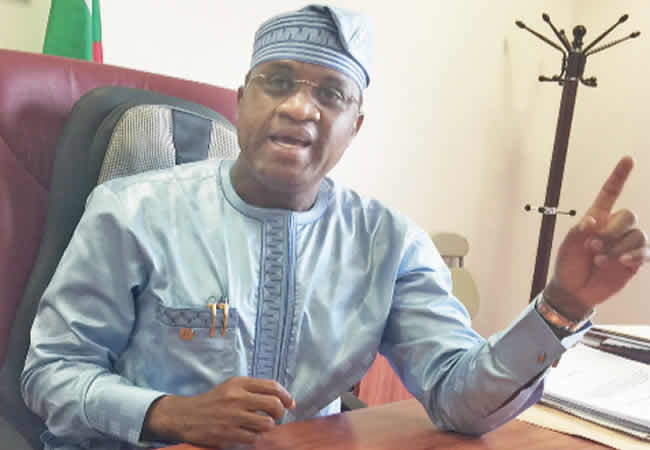Senator Kabiru Marafa, the former coordinator of the Tinubu/Shettima 2023 Presidential Campaign in Zamfara State, has officially resigned from the ruling All Progressives Congress (APC). His departure, confirmed via text message to Channels Television, follows a series of meetings held with his political structure on Wednesday and Thursday, culminating in a formal announcement of their collective resignation on Friday. The decision, driven by deep-seated grievances, underscores a growing discontent within the APC ranks in Zamfara State and highlights the complex interplay of political maneuvering, security concerns, and allegations of neglect. Marafa’s exit signifies a significant political development in the state, potentially reshaping the political landscape and raising questions about the APC’s future prospects in the region.
At the heart of Marafa’s and his supporters’ decision lies a profound sense of disillusionment with the APC leadership, both at the state and federal levels. The group cites a pattern of injustice, marginalization, and a perceived deliberate neglect of Zamfara State and its people. This perceived neglect is further exacerbated by the worsening security situation in the state, which they claim the Federal Government has failed to address adequately. They point to Zamfara’s alarming statistics as the state with the highest number of kidnapping cases in the country, a grim indicator of the escalating insecurity plaguing the region. This sense of abandonment and vulnerability has fueled their discontent and contributed to their decision to break ties with the ruling party.
Adding to their grievances is the allegation of political manipulation of the security apparatus. Marafa’s group accuses the Federal Government of prioritizing electoral gains over the safety and well-being of the Zamfara people. They specifically cite the recent Kaura Namoda bye-election, alleging that security forces were strategically deployed to ensure the APC’s victory rather than to protect the lives and property of the citizens. This alleged politicization of security has deepened their mistrust of the APC and reinforced their conviction that the party is not genuinely committed to addressing the pressing security challenges facing the state.
The distribution of political appointments has further fueled the sense of marginalization felt by Marafa’s faction. They contend that despite Zamfara State’s significant contribution to the APC’s presidential victory in 2023, the state has been unfairly treated in the allocation of ministerial positions. While other states in the North-West region have secured multiple ministerial slots, Zamfara has received only one, a disparity they view as a blatant disregard for their contributions and a sign of their diminished political influence within the party. This perceived inequity in the distribution of power and resources has added another layer to their discontent and solidified their decision to seek a different political path.
Furthermore, the group expresses deep concern over the lack of adequate federal intervention in communities ravaged by banditry. Despite the widespread devastation caused by these attacks, they claim that affected communities have received little to no support from the Federal Government, leaving them vulnerable and struggling to rebuild their lives. This perceived indifference to the plight of the victims of banditry has further eroded their trust in the APC and reinforced their belief that the party is not prioritizing the welfare of the Zamfara people. The combination of insecurity, political marginalization, and neglect has created a climate of disillusionment, ultimately leading to Marafa’s resignation and the departure of his political structure from the APC.
The communiqué issued by Marafa’s group, signed by Comrade Bashir Muhammad Mafara, the Chairman, and Dr. Mannir Bature Tsafe, the Secretary, formally declares their resignation from the APC and outlines their intentions to chart a new political course. While they have not yet disclosed their next political move, they emphasize that their future direction will be guided by the collective interests of the people of Zamfara State. This suggests a potential realignment of political forces within the state and raises the possibility of new alliances and political formations. Marafa’s exit and the departure of his supporters represent a significant political development, with potential ramifications for the APC’s future in Zamfara State and the broader political landscape of the region. Their decision underscores the importance of addressing the underlying issues of insecurity, political representation, and equitable resource allocation to maintain stability and foster trust in the political process.














